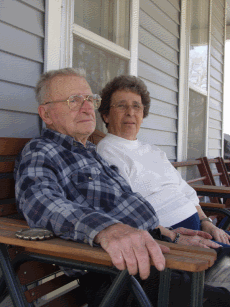Signs Your Parents Need Help
Determining What Kind of Help is Needed
 Why Mental Health for Seniors is
Often Overlooked
Why Mental Health for Seniors is
Often Overlooked

How would you know if your elderly parents need help? With more and more families dispersed geographically, adult children who live far away from their elderly parents face ongoing worry about their health and safety.
As aging parents, particularly those who live alone, face medical and mobility issues, questions relating to their physical, social and psychological well-being arise. Adult children should be aware of any changes in their parents' attitudes or behavior- changes which are often undetectable over the telephone.
A geriatric care manager, usually a licensed nurse or social worker who specializes in geriatrics, is a sort of "professional relative" who can help you and your family to identify needs and find ways to meet your needs.
Geriatric care management is the process of planning and coordinating care of the elderly and others with physical and/or mental impairments to meet their long term care needs, improve their quality of life, and maintain their independence for as long as possible.
10 Warning signs your elderly parents may need help:
1. Mail and bills are left to pile
up. The
simple act of opening and filing mail becomes overwhelming.
Paying bills on time. Managing a checking account can also
become too much for a parent to handle.
2. The house is cluttered or
unkempt. Lack
of interest. This should be of special concern if parent has
always been neat and orderly.
3. Food in the refrigerator is
uneaten or spoiled. Shopping,
cooking, and cleaning become too much trouble. A parent might
eat just enough to get by, but suffer nutritionally. Losing
weight can be another sign that a parent is not eating a
nutritious diet.
4. Signs of scorching on the
bottoms of pots and pans. A
result of short-term memory loss, this is a dangerous sign that
parents are forgetting about pots left on the stove, causing a
fire hazard, and threatening both the individual and the
surrounding neighbors' safety.
5.
Declining personal hygiene as
indicated by unkempt hair, dirty or lengthy nails, poor oral
hygiene, body or urine odor, unshaven, and wearing same clothes
over and over e washing machine is in the basement. Or there may
be a fear of falling in the tub or shower.
6. Missed doctor's
appointments. Sometimes
this is simply a product of not having transportation and not
knowing how to access ride options.
7. Getting up and down stairs
and in and out of home becoming difficult. Walking
unsteady on level ground, complaining of dizziness, and falls
are likely or have already occurred
8. Forgetting to take
medication. A
sign of short-term memory loss or depression, this is not
just a quality of life issue, but a real risk factor.
9. Inappropriate behavior,
clothing or speech. You
may hear about this from a neighbor, someone who has noticed
that your parent is not dressing appropriately for the weather,
for instance. That's a sign that he or she might be confused.
10. Not recognizing need for,
arranging, or scheduling necessary household repairs
and maintenance. Lawn not mowed, trash disposed of, and
mail retrieved with any regularity
Determining the Type of Help Needed
Once adult children determine their
elderly parent may need help or assistance the next step is
determining what kind? Do
they need adult day services, home
safety modifications, meal delivery, seen by a geriatric
doctor to
rule out depression, in home care, interaction
at a senior center, and installing a medical
alert device. These are just a few things that can make a
big difference to an older adult living alone, who most likely
wants to remain at home to 'age in place'.
What You Can Do
Families
can also consider consulting a Geriatric
Care Manager. Care managers work closely with each elderly
parent and his or her family, making a detailed assessment to find
out what solutions are needed, and will be more likely accepted.
In addition, a care manager can often help a parent understand the
need for change.
Resistance to any kind of change is common especially among the
senior population. That's where having an objective third party
involved can be helpful. Geriatric Care Managers can make this
time of transition easier for everyone. Even if the adult children
live out of the area a care manager can be their eyes and ears so
a parent's everyday well-being is less of a worry.
Related Articles:
Home | About | Articles | Resources | Site Map | Privacy Policy
Elder Options of Texas
Copyright 2001-2024
All Rights Reserved
DISCLAIMER: Links to other websites or references to products, services or publications do not imply the endorsement or approval of such websites, products, services or publications by Elder Options of Texas. The determination of the need for senior care services and the choice of a facility is an extremely important decision. Please make your own independent investigation.

